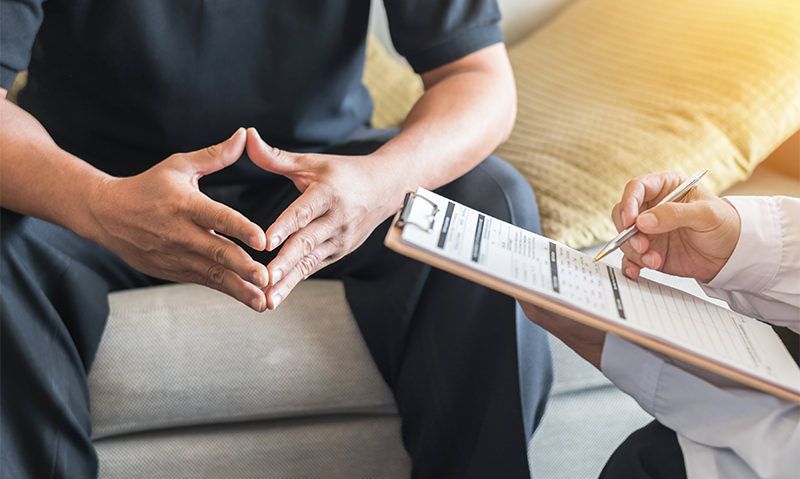
The survey, in conjunction with Mental Health Awareness Month, is designed to collect data that will help The American Legion bring local resources to veterans and their families.
The American Legion has launched an online mental health survey in support of the Department of Veterans Affairs (VA) Public Health Approach to Reducing Veteran Suicide. It is part of the American Legion’s continuing research and efforts on mental health issues impacting our nation’s veterans. The survey was created by the American Legion’s TBI/PTSD Committee and is designed to collect data that will help The American Legion bring local resources related to TBI, PTSD, and Suicide Prevention to veterans and their families.
“Using a public health approach is a proactive strategy to increase suicide prevention readiness because it draws on the power of the collective, as opposed to the reactive strategy of focusing on the individual,” read The American Legion’s testimony on suicide prevention. “The first line of defense in preventing veteran suicide is the veteran’s primary social circle — close friends and family. Those individuals closest to the veteran are the most likely to notice small changes in mood and behavior. They are also best equipped to approach the veteran with concerns of suicide due to their established level of trust.”
The information collected by the survey on current suicide prevention training efforts, in addition to various forms of treatment for TBI and PTSD, will help The American Legion determine its current suicide prevention readiness, areas of potential improvement, and aid in the development of a consolidated list of available resources. These resources will be categorized by location and vetted to ensure the treatments are evidence based and beneficial for veterans.
“Friends and family can be powerful protective factors if they are educated on the warning signs of mental distress as well as resources available to veterans,” said Joshua Hastings, the PTSD/TBI Program Coordinator in the American Legion’s Veteran Affairs and Rehabilitation Division. “This knowledge increases the likelihood of a veteran getting the help she or he needs before mental health crises become critical.”
You can take the American Legion’s Mental Health Survey here.
- Veterans Healthcare

